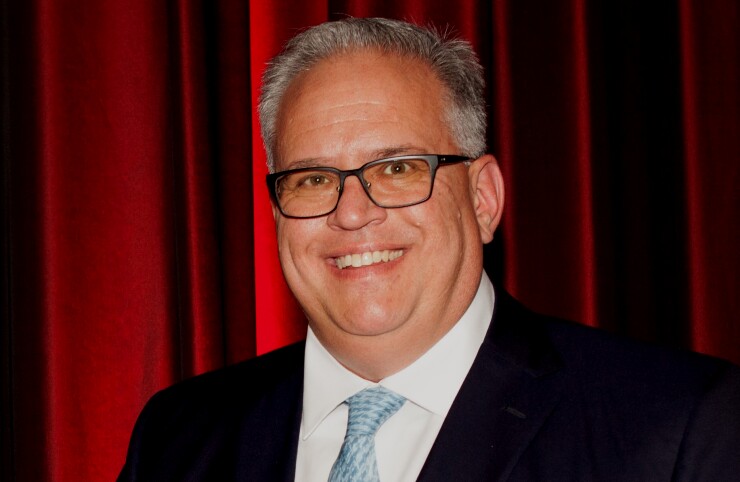The Municipal Securities Rulemaking Board’s proposed fee amendments submitted to the Securities and Exchange Commission are catching backlash from muni industry leaders over a perceived failure to address the discrepancy between fees collected from dealers and municipal advisors, in addition to a lack of transparency over the budgeting process.
That’s according to letters submitted to the SEC by representatives from the Bond Dealers of America, National Association of Municipal Advisors and the Securities Industry and Financial Markets Association, urging the Commission to reject the proposal.
“Dealers pay 90-plus percent of the industry-derived revenue that the MSRB collects and that's consistent over many years since the MSRB has been regulating MAs post-Dodd-Frank,” said Michael Decker, senior vice president for public policy at the Bond Dealers of America. “That's just unfair and inequitable and inappropriate and this project of reviewing and revising their fee structure should have provided an opportunity for the board to consider and address that issue and find a way to adjust the lopsided burden that applies to broker-dealers relative to municipal advisors.”
“Because they didn't address this issue, we were not supportive of the proposal,” he added.

The MSRB started looking at relative contributions between MAs and broker-dealers in 2014, and has made some moves to address the financial burden imposed on dealers by
MSRB estimated that broker-dealers accounted for around 80% of its fees in 2019 and hoped to continue to bring that down as a step in the direction of fairness and equity. But now, BDA estimates that they make up 92% of fees, a proportion that places too much of the burden on that side of the market.
The board’s proposed Annual Rate Card Process will determine the fees the board charges based on the total amount of revenue each fee was expected to contribute, expected volume of activity of each fee, in addition to the amount of revenue generated from the fee in the previous fiscal year compared with its corresponding budget.
But the proposed measures haven’t done much to quell the concerns of both MAs and broker-dealers, who both feel the fee arrangement doesn’t work well for their segment of the market.
“Neither the narrative nor the amendment language includes the proportionate ratio amounts, the Annual Rate Card Process, or the updated Funding Policy,” the NAMA letter said.
In addition to the details of the Annual Rate Card Process and Updated Funding Policy not included in the SEC filing, NAMA feels that the caps thresholds could cause significant fee increases over time.
“NAMA is troubled by the significance of the word ‘generally’ in the discussion about the Rate Card Process and in the Amendment language to Rule A-11,” the NAMA letter said. “It begs the question - are these caps actually in place as stated or are they to be ‘generally’ observed (which we read as meaning the caps could change and still be consistent with the filing),” NAMA added. “The compounding of these increases would create an undue burden on small MA firms.”
From conversations with the MSRB, NAMA said that the MA portion of fees is 8% of the total fees it collects but provides no rationale for how those proportions are derived.
“Without specific ratios, or a detailed, clear process for how those ratios are calculated, the filing offers us no specificity as to fees,” the NAMA letter said.
Others joined NAMA in condemning the lack of transparency the board continues to exhibit in its budgeting process.
“The members of our organizations have expressed ongoing concern that some of the MSRB’s funded initiatives are not germane to its statutory authority,” the joint letter from BDA, NAMA and SIFMA said. “We continue to request that the MSRB provide greater transparency regarding expenditures, especially with regard to expenses that do not support the important and necessary work the MSRB is authorized to execute.”
The concerns over individual fees and the inability of the board to provide a rationale for why they need a certain amount of operating money gets to the heart of many concerns that the MSRB is overstepping its Congressional mandate, whether on ESG or other technology projects.
“In recent years, the MSRB has undertaken projects that many of our members think are at best on the fringes of their core mission,” Decker said. “The MSRB’s mission is to regulate the industry for the benefit of issuers and investors and some of the technology projects that they've undertaken seem a few steps away from that.”
But the muni market leaders do agree on some aspects of the proposal. SIFMA agrees that an annual rate setting process can be beneficial to the board’s efforts in managing reserve levels, BDA agrees with the board on amending the process based on the MSRB’s anticipated budget and projections for market activity, and NAMA had hoped to support the amendments that would establish a new framework for assessing fees on regulated entities.





